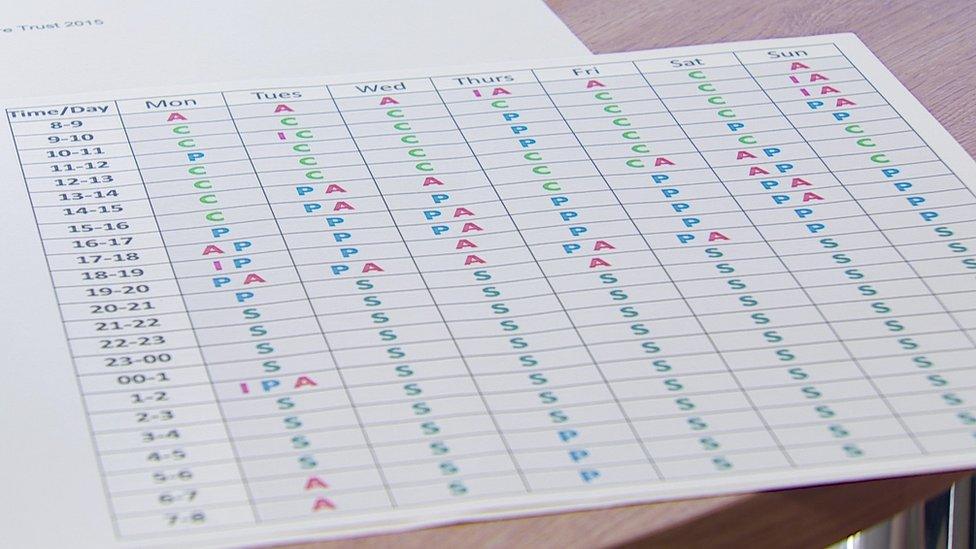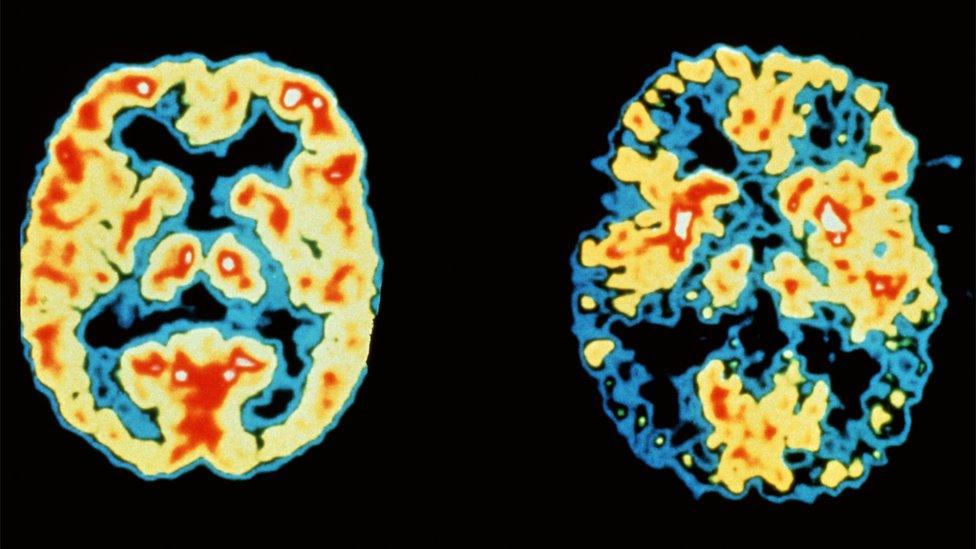NI-designed dementia tool aims to deepen understanding
- Published

The tool can provide a better understanding of challenging behaviour
A new assessment tool has been developed to help evaluate people diagnosed with dementia.
The model, called Look At All of Me, has been designed by Frances Duffy, a clinical psychologist in the Northern Health Trust.
It aims to equip care home staff with information so they can understand and assess behaviour, particularly when it is most challenging.
Dr Duffy said the new model can meet a patient's specific needs.
"What is so important is that we remember that the patient is still a person and we look at the person's entire behaviour and not just as someone who has been labelled with dementia," she said.
'Elizabeth paces'
The tool is quite simple - by using initials including A, S, I and P, it records at what time of the day a person is aggressive, sleeping, incontinent or pacing.
Dr Duffy said challenging behaviour is not an inevitable symptom of dementia but often a sign of stress, anxiety and frustration.

The chart uses initials to record an individual's behaviour throughout the day
She explained how the model worked using the chart of a woman called Elizabeth, who has been diagnosed with dementia.
"The As show when she has been seen as being aggressive," Dr Duffy said.
"That happened every morning between 8am and 9am during personal care. That means she became agitated when people came in to undress and wash her.
"Can you imagine how you would feel if someone that you don't know very well came into your room, perhaps rushed and not very friendly, and started to undress you?
"Of course, you would feel agitated and may come across as aggressive."

Frances Duffy said the tool can be used to make changes in a patient's care
She added: "The chart also reveals that every day, between 3pm and 4pm, Elizabeth paces.
"Staff noted that seemed to happen during visiting time when there are lots of strangers in the care home, which can be off-putting and even stressful."
Care delivery
The message is that people with dementia continue to behave and react to situations around them just like anyone else. Just because they have dementia does not mean they will react differently.
Dr Duffy said that the chart allows staff and families to understand a dementia patient's actions and reactions.
"Of course, it is very difficult but when we understand what might be causing the challenging behaviour - which may look like aggression - we can make changes to how that person's care is being delivered," she said.
The model, developed by the Northern Health and Social Care Trust, is being implemented by Avon & Wiltshire and Devon Health Authorities in England.
While the scheme has been rolled out across independent residential care homes in the Northern Trust, the aim is for all health trusts to benefit.
- Published5 January 2017

- Published14 November 2016
